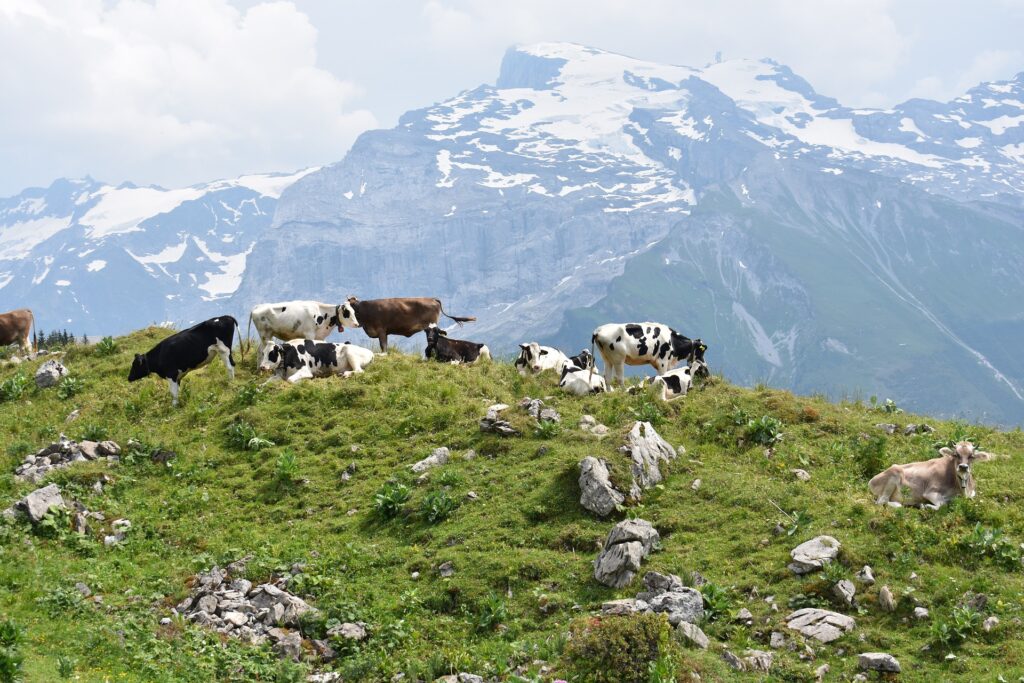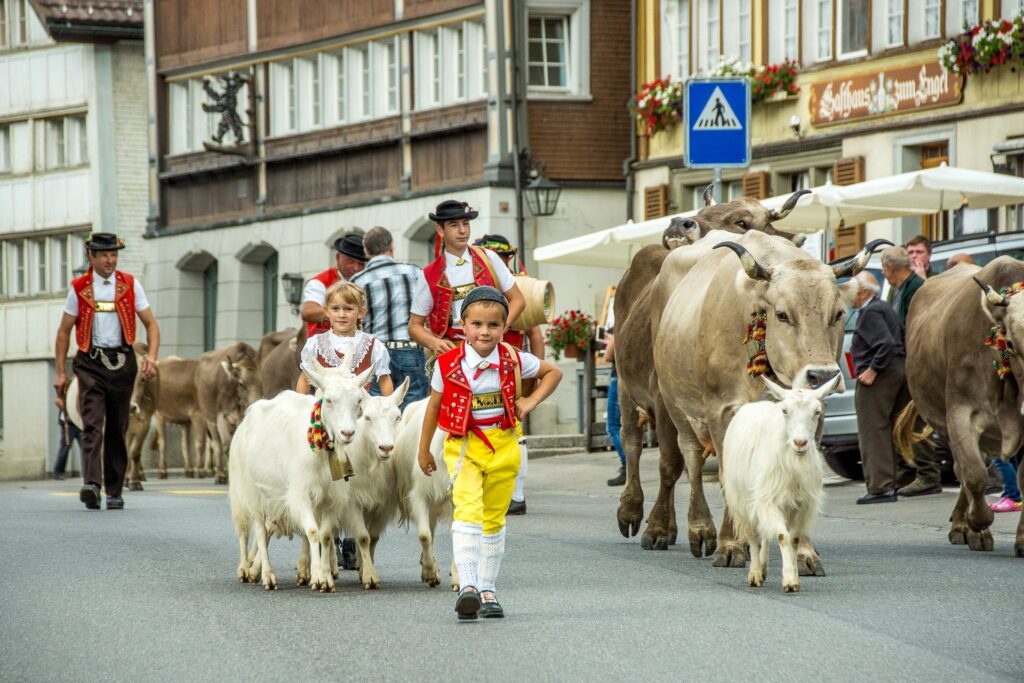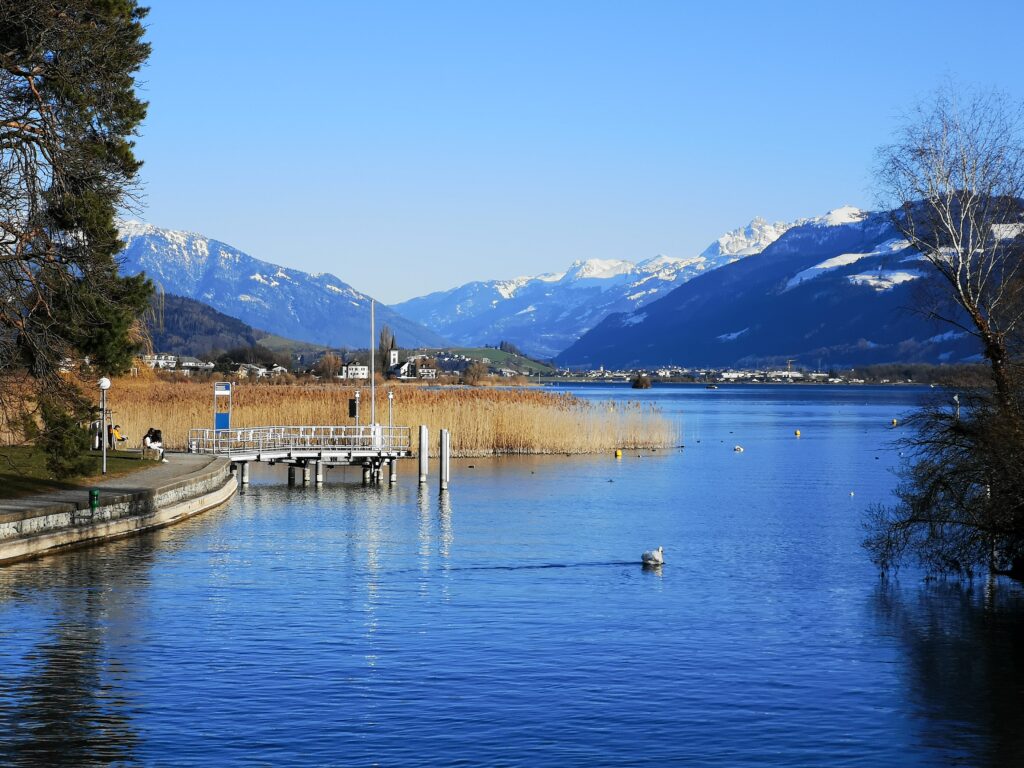The alpine season as candidate for the intangible cultural heritage of UNESCO
An emblematic tradition of mountain areas, the alpine season could soon be inscribed on the Representative List of the Intangible Cultural Heritage of Humanity. UNESCO will examine at the end of 2023 the candidacy filed by Switzerland, which is also participating in the transnational candidacy of Traditional Irrigation in Europe with the aim of highlighting the Swiss traditions of irrigation ditch consortia and irrigated meadows.

Raising livestock on high-altitude summer pastures has been a living tradition since the Middle Ages. Over the course of time, the alpine season has been continually adapted to local climatic, social and economic conditions and has thus made it possible to produce quality foodstuffs that have made Switzerland famous throughout the world.
Alpine season
The ascent and descent of alpine pastures, cheese production methods, pasture management skills, handcrafted utensils and traditional songs constitute a repertoire of customs, skills and rituals typical of the alpine season and make it a very lively tradition. Yet its future raises many questions, for example about the transmission of this knowledge or the adaptation of the practice of mountain pasture to climate change. The preparation of the candidacy has made it possible to identify concrete measures to ensure that this tradition can be passed on to future generations.
The dossier was elaborated by the Federal Office of Culture (FOC) and experts in the field of cultural heritage and agriculture, with the support of an extended accompanying group made up of representatives from the alpine economy, the cantons, museums, natural parks and other interested organizations. Following an evaluation process lasting around 18 months, UNESCO will decide in November 2023 whether to include the alpine season in the Representative List of the Intangible Cultural Heritage of Humanity.
Traditional Irrigation in Europe: Knowledge, Techniques and Organization
Switzerland also supports the transnational candidacy of Traditional Irrigation in Europe: Knowledge, Techniques and Organization together with six other countries coordinated by Austria. This candidacy aims to enhance the value of traditional systems of irrigation and water management, in particular by historical consortia whose task is to administer common goods in a local and participatory dimension. In Switzerland, the project includes the “Wässermatten” (irrigated meadows) of Upper Aargau (Cantons of Bern and Lucerne) and the consortia of irrigation ditches in the Canton of Valais (Oberwalliser Sonnenberge, consortia of Ayent, Lens, Trient, Nendaz and Grächen).

The Convention for the Safeguarding of the Intangible Cultural Heritage of UNESCO
With the Convention for the Safeguarding of the Intangible Cultural Heritage, which differs from the Convention for the Protection of the World Cultural and Natural Heritage, UNESCO aims to protect a heritage that is not materialized in space, but in time, in community practices and social interactions. This heritage includes living traditions such as oral expressions, performing arts, social practices, rituals and festivals, knowledge about nature and the universe, and craft skills. It thus illustrates human creativity and bears witness to the great diversity of cultural expressions throughout the world.
UNESCO World Heritage in Switzerland
Two Swiss beech forests are UNESCO World Heritage Sites

Address for questions
About the application and selection procedures:
– Julien Vuilleumier, Scientific Collaborator Intangible Cultural Heritage / UNESCO, julien.vuilleumier@bak.admin.ch, 058 467 89 75
About the Alpine season:
– Isabelle Raboud-Schüle, member of the Swiss Commission for UNESCO, isabelle@raboud.com, 078 796 83 33
– Moritz Schwery, director of the agricultural school in Visp, member of the committee of the Swiss Society for Alpine Economics, moritz.schwery@admin.vs.ch, 079 745 34 55
– Ernst Roth, director of the ROTH foundation, info@rothstiftung.ch, 034 422 13 84
On traditional irrigation:
– Michael Liechti, committee member of the Wässermatten foundation, michael.liechti@suva.ch, 041 419 63 60- Raimund Rodewald, director of the Swiss Foundation for Landscape Protection (SL-FP -), member of the specialized committee Bewässerungslandschaft Oberwalliser Sonnenberge, r.rodewald@sl-fp.ch, 031 377 00 77- Gaëtan Morard, director of the Musée valaisan des bisses and co-president of the Association des Bisses du Valais, gaetan.morard@musee-des-bisses.ch, 027 398 41 47
Source: https://www.admin.ch/gov/it/pagina-iniziale/documentazione/comunicati-stampa.msg-id-87805.html





